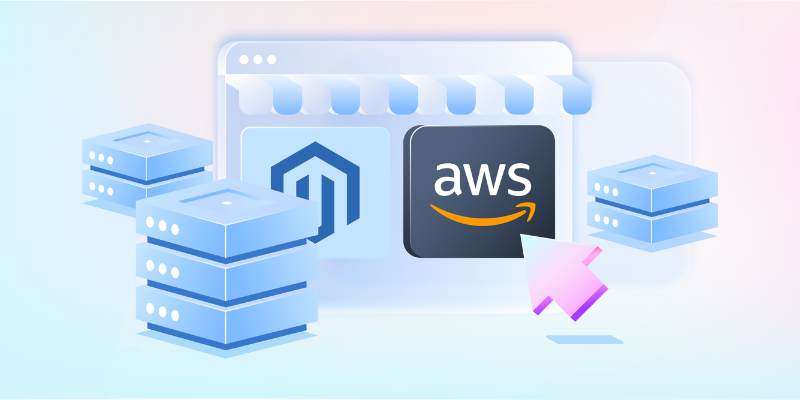As businesses continue to migrate their operations to the cloud, proficiency in cloud technologies has become increasingly vital. Google Cloud Platform (GCP) has emerged as a leading cloud service provider, offering a wide array of tools and services designed to meet diverse business needs. GCP certifications validate an individual’s expertise and knowledge in utilizing Google Cloud services effectively. This article will provide an overview of GCP certifications, explaining the different types and levels available, and how they can benefit your gcp certifications.
Why GCP Certifications Matter
Before diving into the specifics of GCP certifications, it’s important to understand why these certifications hold value. GCP certifications help individuals demonstrate their skills and knowledge to employers, providing a competitive edge in the job market. As organizations increasingly adopt cloud technologies, they seek professionals who are not only knowledgeable but also certified in specific platforms. GCP certifications are recognized globally and are often a requirement for cloud-related roles, making them a valuable asset for anyone looking to advance their career in cloud google cloud platform certification.
Types of GCP Certifications
Google Cloud offers a variety of certifications that cater to different skill sets and career paths. These certifications can generally be categorized into four main types:
1. Foundational Certifications
Foundational certifications are designed for individuals who are new to cloud technology and want to gain a fundamental understanding of Google Cloud services. The primary certification in this category is:
- Google Cloud Digital Leader: This certification is ideal for professionals who want to understand the basics of Google Cloud and how it can be used to enhance business operations. It covers core concepts such as cloud computing, Google Cloud products, security, and compliance. This certification is suitable for business decision-makers, project managers, and individuals looking to enter the field of cloud computing.
2. Associate Certifications
Associate certifications are targeted at individuals with a foundational understanding of Google Cloud who wish to specialize in specific roles. These certifications validate the ability to deploy and manage Google Cloud services effectively. The available associate certifications include:
- Associate Cloud Engineer: This certification focuses on the skills needed to deploy applications, monitor operations, and manage enterprise solutions on Google Cloud. It is ideal for professionals who are responsible for the deployment and management of applications and services in the cloud. Candidates are expected to understand the basics of cloud computing, Google Cloud resources, and operational procedures.
3. Professional Certifications
Professional certifications are more advanced and are aimed at individuals with substantial experience in Google Cloud technologies. These certifications require a deeper understanding of GCP products and services and demonstrate expertise in specific areas. The professional certifications available are:
- Professional Cloud Architect: This certification validates the ability to design, develop, and manage robust, secure, scalable, and dynamic solutions to drive business objectives. Candidates must demonstrate proficiency in GCP services, architecture patterns, and best practices in cloud technology.
- Professional Data Engineer: This certification is designed for individuals who design and build data processing systems and machine learning models. It tests the ability to leverage Google Cloud technologies to collect, transform, and visualize data for insights.
- Professional Cloud Developer: This certification is intended for developers who build applications on Google Cloud. It covers topics such as application design, development, and deployment, as well as best practices for optimizing application performance.
- Professional Cloud Security Engineer: This certification focuses on implementing and managing security controls and practices in Google Cloud. Candidates must demonstrate the ability to secure data, applications, and infrastructure on GCP.
- Professional Collaboration Engineer: This certification is aimed at professionals who manage and optimize Google Workspace (formerly G Suite) environments. It validates skills in configuring, managing, and deploying collaboration tools and services.
4. Specialty Certifications
Specialty certifications focus on specific technical areas within Google Cloud. They are intended for individuals who want to demonstrate expertise in niche areas. The specialty certifications include:
- Professional Machine Learning Engineer: This certification is for professionals who build and deploy machine learning models using Google Cloud technologies. Candidates must understand the fundamentals of machine learning, data preparation, and model evaluation.
- Professional Cloud Network Engineer: This certification focuses on the design, implementation, and management of network architectures in Google Cloud. It validates skills in virtual private clouds, hybrid connectivity, and network security.
Levels of GCP Certifications
GCP certifications are categorized into three main levels: foundational, associate, and professional. Each level is designed to build upon the knowledge and skills obtained in the previous level. Here’s a closer look at each level:
1. Foundational Level
At the foundational level, the certification is designed to provide a basic understanding of Google Cloud services. This level is suitable for individuals new to cloud computing or those looking to expand their knowledge base. The foundational certification helps individuals understand core concepts and terminologies, making it easier to transition to more advanced levels.
2. Associate Level
The associate level is geared toward individuals who have some experience with Google Cloud and are looking to specialize in a specific area. This level requires a deeper understanding of GCP services and practical experience in deploying and managing applications in the cloud. Associate certifications serve as a stepping stone to professional certifications, providing individuals with the skills necessary for more advanced roles.
3. Professional Level
Professional certifications are intended for experienced cloud professionals who have a comprehensive understanding of Google Cloud services and their applications. These certifications validate advanced technical skills and expertise, allowing individuals to take on leadership roles in cloud architecture, security, and data engineering. Professionals holding these certifications are often seen as subject matter experts in their respective fields.
Benefits of GCP Certifications
Obtaining a GCP certification can have a significant impact on your career. Here are some key benefits:
1. Enhanced Career Opportunities
GCP certifications can open doors to a wide range of career opportunities in cloud computing. Many organizations prioritize candidates with cloud certifications, especially in roles such as cloud engineer, data engineer, and cloud architect. Certified professionals are often considered for higher-level positions with greater responsibilities.
2. Increased Earning Potential
Certified professionals typically earn higher salaries compared to their non-certified peers. According to industry reports, cloud professionals with GCP certifications command competitive salaries due to their specialized skills and knowledge. Investing in GCP certification can lead to significant financial rewards.
3. Recognition and Credibility
Holding a GCP certification enhances your professional credibility. It demonstrates to employers that you possess the skills and knowledge required to succeed in cloud-related roles. Certifications can serve as a testament to your commitment to continuous learning and professional development, making you a more attractive candidate in the job market.
4. Access to Resources and Networking Opportunities
Certified professionals often gain access to exclusive resources, including training materials, webinars, and networking events. These resources can help you stay updated on the latest trends in cloud technology and connect with other professionals in the field.
Conclusion
GCP certifications offer a valuable pathway for individuals looking to build a career in cloud computing. With a range of certifications available at foundational, associate, and professional levels, there are options to suit varying experience levels and career goals. By obtaining GCP certifications, professionals can enhance their skills, increase their earning potential, and gain recognition in the job market.
As the demand for cloud expertise continues to rise, investing in GCP certifications can position you for success in a rapidly evolving industry. Whether you’re just starting or seeking to advance your career, GCP certifications provide the knowledge and skills necessary to excel in the world of cloud computing. Embrace the opportunity to become a certified GCP professional and unlock the doors to a fulfilling and prosperous career in the cloud.



